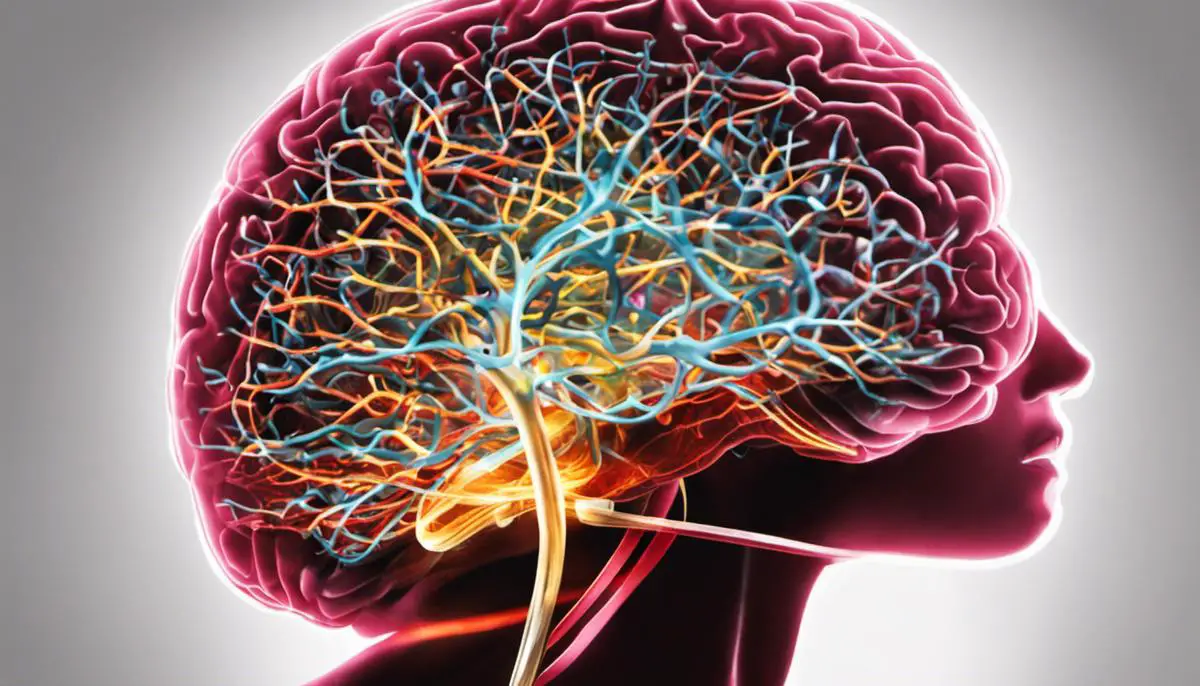When talking about exercise, I hear people say that they have no time to do so or they will do so when they are free. But I keep on running regularly anyway. Physical exercise always has benefits. And one of them can prevent dementia or improve brain health. Now, let’s see why in this discussion on the relationship between physical activity and cognition.
Table of Contents
Introduction
In the contemporary world, maintaining health and well-being often tends to focus on physical aspects like dietary habits, cardiovascular fitness, and weight management. However, an equally significant yet undervalued component is our cognitive function – the mental processes and abilities that enable us to carry out any task from the simplest to the most complex.
Interestingly, research is drawing ever-growing connections between these two areas. One major influence on cognitive function appears to be physical activity, a universally accessible tool with myriad forms and intensity levels. This discourse aims to shed light on the fundamental understanding of physical activity and cognitive function, the compelling body of scientific evidence connecting the two, the underlying physiological mechanisms driving this association, and practical recommendations for physical activity to optimize cognitive health.
Physical Activity and Cognitive Function
Link Between Physical Activity and Cognitive Function
Research indicates a strong link between physical activity and cognitive health in all age levels: children (Sibley & Etnier, 2003), adolescents (Esteban-Cornejo et al., 2015), adulthood (Ratey & Loehr, 2011) and old age (Lautenschlager & Almeida, 2006). Regular physical activity, especially aerobic exercises, are considered beneficial for brain health and cognitive function. Exercising regularly can stimulate brain regions involved in memory function to release a chemical called brain-derived neurotrophic factor (BDNF), which is known to aid brain cell growth, mood regulation, and learning.
Besides, physical activities can also improve cognition through several other mechanisms. For instance, exercise can enhance cardiovascular health, which in turn can improve blood flow to the brain. Improved blood flow ensures better delivery of oxygen and nutrients to the brain cells, promoting their health while encouraging the formation of new neurons and connections.
Physical activity also plays a significant role in mitigating some of the cognitive declines as we get older. It has been associated with slower cognitive decline and lower risk of cognitive impairment and dementia. Notably, both aerobic activity and resistance training have shown beneficial effects on cognitive function in adults.
To maximize the cognitive benefits, it is important that physical activity is regular and consistent. The Centers for Disease Control and Prevention recommended that adults should engage in at least 150 minutes a week of moderate-intensity, or 75 minutes a week of vigorous-intensity aerobic activity, combined with muscle-strengthening activities on 2 or more days a week.
Connection between Physical Activity and Attention
Physical activity also exhibits a positive impact on attention span. Attention is a cognitive process that allows individuals to focus on specific stimuli or tasks while ignoring others. Regular physical activity has been shown to improve parts of the brain involved in attention.
Engaging in physical activity, particularly activities that require a good deal of concentration like martial arts or dance, can enhance attentional control. It helps in improving the ability to maintain focus, switch between tasks efficiently, and ignore irrelevant information.
Influence on Memory and Learning
Memory is another key component of cognitive function that gets a boost from physical activity. Studies have indicated that high levels of physical activity can lead to improvement in memory performance (Lambourne, 2006). It is especially beneficial in enhancing episodic memory, which entails our ability to recall past events.
Physical activity enhances memory and learning by promoting neuroplasticity. Neuroplasticity refers to the brain’s capacity to form and reorganize synaptic connections, particularly in response to learning or experience, which results in improved memory functions. Likewise, physical activity increases the size of the hippocampus, an area of the brain involved in learning and memory, leading to improved cognitive abilities.
In essence, regular physical engagement significantly aids in preserving and enhancing cognitive performance. As such, physical activity should be considered a critical component in supporting overall mental and emotional well-being.
Cardiovascular Fitness and Brain Health
Cardiovascular fitness plays a significant role in maintaining brain health. Regular aerobic exercises – such as running, cycling, or swimming – improve heart and lung health, which in turn ensure a healthy supply of oxygen and nutrients to the brain. This can have direct benefits to brain function and enhance an individual’s cognitive abilities.
Physical Activity, Aging, and Cognitive Decline
As people age, a decline in cognitive function is often observed. However, physical activity has been proposed as a potential preventive strategy for cognitive decline. Regular physical activity, especially aerobic, can help maintain and even improve cognitive capability in older adults. It appears it can delay the onset of or slow down dementia and Alzheimer’s disease.
Regular physical activity is scientifically proven to have a myriad of cognitive benefits. Research suggests that consistent physical exercise not only enhances cognitive function in the short-term but also minimizes the risk of cognitive decline in the long-run. Thus, the integration of routine physical workouts into one’s lifestyle is crucial for overall brain health.

How Physical Activity Improves Cognitive Function
1. The Role of Physical Activity in Boosting Brain Health
Physical activity wields a direct and beneficial impact on cognitive health. Our knowledge today, built on numerous studies, reveals that regular exercise promotes the growth of the hippocampus, which is the brain region accountable for memory and learning. This growth is catalyzed by the release of brain-derived neurotrophic factor (BDNF), a protein vital for the development of neural connections.
2. Promotion of Neuroplasticity
Physical activity significantly promotes neuroplasticity, the brain’s incredible ability to change and adapt over a person’s lifetime. Neuroplasticity allows the neurons in the brain to compensate for injury and adjust their activities in response to new situations or changes in the environment.
Physical activity promotes neurogenesis, the process of creating new neurons, particularly in the hippocampus, which is crucial for learning and memory. Exercise, whether it’s aerobic, yoga, or strength training, encourages the growth and development of neural networks, enhancing brain plasticity.
3. Increased Blood Flow to the Brain
Exercise leads to increased blood flow to the brain. This enhancement in cerebral blood flow provides numerous benefits, including improving brain health and function. As blood circulates, it transports crucial nutrients and oxygen to the brain, essential to cognitive function and overall brain health.
Higher blood flow also aids in the removal of waste products like beta-amyloid, a protein linked to Alzheimer’s disease, potentially lowering the risk of developing such neurodegenerative disorders.
4. Boosting Mood and Sleep
Physical activity also helps to boost mood and improve sleep, both playing a vital role in cognitive function. Regular exercise aids in the balance of key mood-enhancing neurotransmitters in the brain, like serotonin, dopamine, and norepinephrine, that can result in reduced feelings of anxiety and depression, and improved mood and perceptions of well-being.
Further, studies have shown a strong link between physical activity and improved sleep quality. Adequate sleep is essential for memory consolidation, the process of forming and storing new memories, and improves attention, creativity, and overall cognitive function.
5. Exercise as a Cognitive Shield
One vital aspect of physical activity is its role as a safeguard against cognitive decay as we age. It is established that regular physical activity helps delay or even prevent the onset of serious cognitive conditions like Alzheimer’s disease and dementia.
Furthermore, regular aging can have a negative impact on mental faculties, such as memory and processing speed, even in the absence of severe diseases. However, maintaining an active lifestyle can help counteract these effects, thereby protecting the brain health and cognitive functions well into later years. The link between physical activity and cognitive health clearly highlights the necessity of an active lifestyle.

Recommendations for Physical Activity
Impact of Physical Activity on Cognitive Health
Physical engagement may be the single most effective action one can take to mitigate cognitive decline and indeed enhance cognitive abilities. Physical activity exhibits marked benefits on brain health. Multiple systematic reviews have shown a favorable correlation between active lifestyles and enhanced cognitive functioning.
Recommended Physical Activities Based on Age
Various age groups require different types and intensities of physical activity for preserving cognitive function.
For children and adolescents aged 6-17 years, at least 60 minutes of moderately intense daily aerobic activities like bike riding or running are highly recommended. This can be combined with muscle-strengthening exercises such as gymnastics or push-ups, at least three days a week.
For adults aged 18-64 years, at least 150 to 300 minutes of moderate-intensity aerobic activities weekly, combined with muscle-strengthening activities such as lifting weights or yoga at least two days a week, is preferred.
Older adults, those aged 65 years and above, should follow the guidelines for adults, with activities tailored to their capability levels.
Aerobic Exercises
Aerobic exercises are activities that increase heart and respiratory rates and can vary in intensity. Moderate-intensity exercises include brisk walking and swimming, whereas high-intensity exercises might include running and high-intensity interval training (HIIT).
Engaging in regular aerobic exercise has been consistently linked with improved cognitive function, particularly executive functions such as planning, working memory, and multitasking. Studies reveal that routinely engaging in aerobic exercise can trigger cognitive enhancements in children and teens, and can also protect against cognitive decline in adults and older adults.
Strength Training
Emerging research suggests that not only does strength training boost muscular strength and endurance, but it may also stave off cognitive decline and improve brain function.
In older adults, strength training has shown to improve memory, attention, and decision-making abilities. For younger adults, strength training improves thinking skills, memory, and executive functions. This is thought to be due to the improvements in cerebral blood flow and the production of growth factors, which supports new neuronal cell growth.
Flexibility Exercises
Flexibility exercises like stretching and yoga can help improve balance, reduce muscle tension, prevent injury, and improve cognitive function. Research has shown a link between flexibility training and better attention, memory, and executive functions.
Yoga, in particular, has been found to enhance brain health and cognitive function, especially in older adults. It’s thought that the meditative aspects of yoga, combined with controlled movements and deep breathing, stimulate the brain in a way that boosts various cognitive faculties.
Mental Health Improvements
Beyond enhancing cognitive function, regular physical activity also has demonstrated benefits for mental health. Keeping the mind and body active can help manage symptoms of anxiety and depression, improve sleep, reduce stress levels, and increase self-esteem.
Physical Activity as a Catalyst for Overall Health
Adopting a regular physical activity routine aids not only in the promotion of optimal cognitive function but extends to overall physical health. It can help manage weight, reduce the risk of chronic diseases such as heart disease and diabetes, and even extend life span.
So, getting active is not only working out your muscles but making your brain fitter too. Even small increases in physical activity can make a significant difference in health outcomes. Therefore, it’s never too late to start.
Even though physical activity can significantly contribute to maintaining and enhancing cognitive health, this factor alone is not sufficient. For optimal results, it’s crucial to combine regular exercise with other health-promoting practices. These include maintaining a balanced diet, ensuring sufficient sleep, effectively managing stress, and undergoing regular health check-ups.

Photo by shotsbywolf on Unsplash
Physical Activity and the Formation of Brain Cells
Researchers have found that engaging in regular physical activity aids the formation of brain cells through a process known as neurogenesis. Particularly, aerobic exercise has been shown to result in the increase of hippocampus size, which is the region of the brain associated with memory and learning.
Physical Activity and Mental Health
In connection with cognitive function, physical activity also plays a significant role in mental health. Regular exercise releases endorphins, the brain’s feel-good neurotransmitters, which can help to reduce feelings of stress, anxiety, and depression, conditions that can be detrimental to cognitive function.
Nutritious Diet, Active Lifestyle, and Cognitive Function
Maintaining a balanced, nutritious diet is also crucial for healthy cognitive function. Emerging evidence suggests that a diet high in fruits, vegetables, whole grains, and lean protein can support brain health. Essential fatty acids like Omega-3, which can be found in fish and other seafood, seeds, and nuts, are particularly crucial for brain function.
Similarly, sufficient sleep is critical for cognitive health. During sleep, neuronal connections that play a crucial role in mental and cognitive health are strengthened. It also helps to consolidate memories, which is an essential aspect of learning and retaining information.
Therefore, physical activity, coupled with a healthy diet and adequate sleep, can significantly enhance cognitive function.
Summary
Stepping up physical activity is more than just a gateway to a healthier body; it’s a strategic move towards a sharper, more efficient brain. The compelling link between physical activity and cognitive function is grounded on a wealth of scientific research, illuminating this relationship and its implications for our daily lives. Maintaining regular physical activity, along with a balanced diet, adequate sleep, and other positive lifestyle habits, holds the potential to enhance cognitive function and overall brain health significantly. So, whether it’s a brisk walk, a vigorous gym session, or a mindful yoga practice – remember, every step, stretch, or pose is a stride towards not just a fitter body, but also a fitter mind.
References
Esteban-Cornejo, I., Tejero-Gonzalez, C. M., Sallis, J. F., & Veiga, O. L. (2015). Physical activity and cognition in adolescents: A systematic review. Journal of science and medicine in sport, 18(5), 534-539.
Lambourne, K. (2006). The relationship between working memory capacity and physical activity rates in young adults. Journal of sports science & medicine, 5(1), 149.
Lautenschlager, N. T., & Almeida, O. P. (2006). Physical activity and cognition in old age. Current opinion in Psychiatry, 19(2), 190-193.
Ratey, John J., and James E. Loehr. “The positive impact of physical activity on cognition during adulthood: a review of underlying mechanisms, evidence and recommendations.” (2011): 171-185.
Sibley, B. A., & Etnier, J. L. (2003). The relationship between physical activity and cognition in children: a meta-analysis. Pediatric exercise science, 15(3), 243-256.
[cite]


